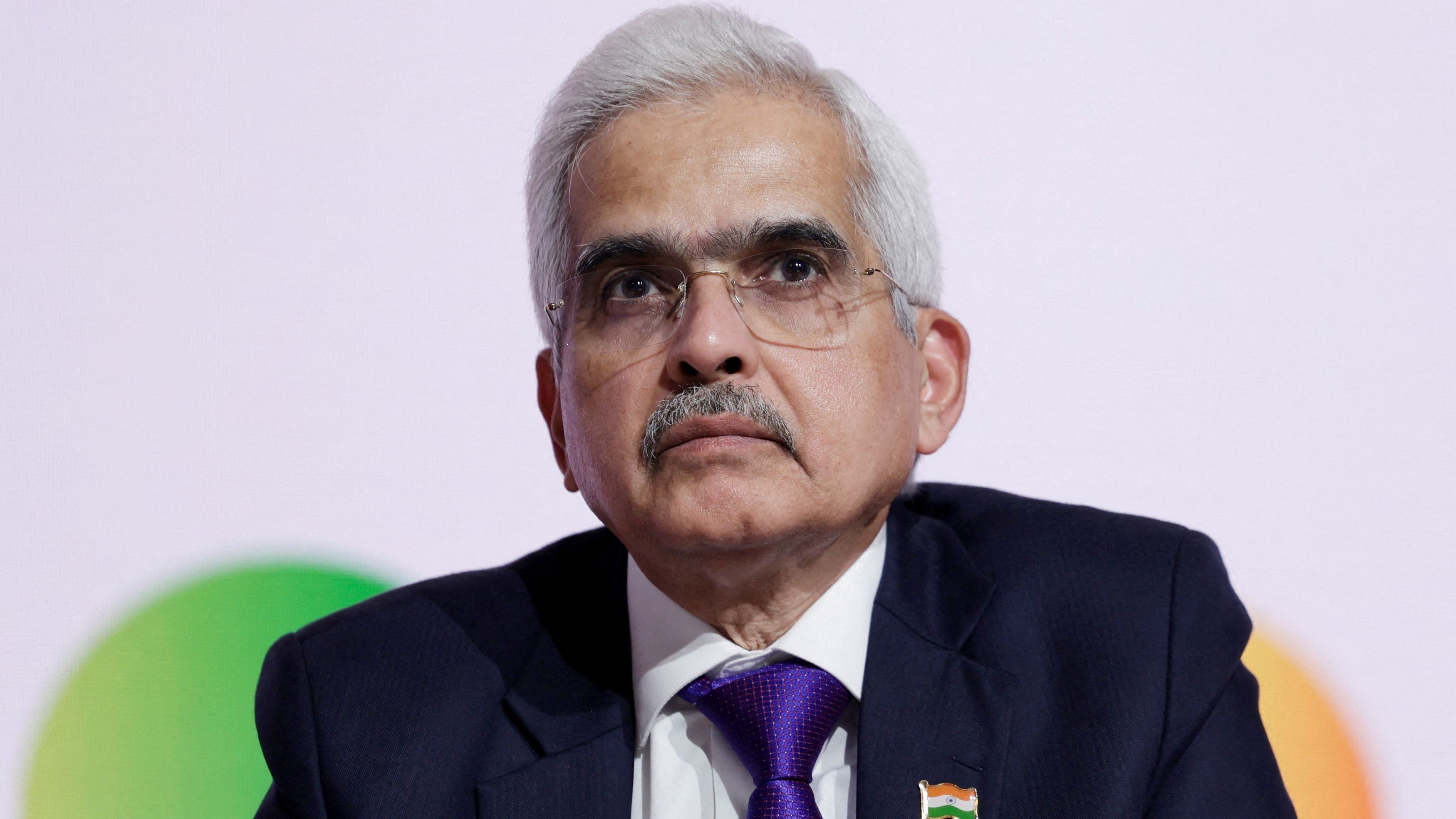
Shaktikanta Das.
Credit: Reuters Photo
New Delhi: The headline retail inflation in India is projected to moderate in the current financial year from a high of 6.7% in 2022-23, but remains vulnerable to recurring and overlapping food price shocks forcing the monetary policy committee to remain watchful, Reserve Bank of India Governor Shaktikanta Das said on Thursday.
The RBI monetary policy committee in its October 2023 meeting has projected consumer price index (CPI) based inflation at 5.4% for 2023-24. The headline retail inflation eased to 5.02% in September from 6.83% in the previous month, as per the latest government data.
Das pointed out that the core inflation has moderated by 170 basis points since its recent peak in January 2023.
“In these circumstances, monetary policy remains watchful and actively disinflationary to progressively align inflation to the target, while supporting growth,” the governor said. RBI’s medium-term target is to keep retail inflation at 4%. The headline inflation has been above the RBI’s target for the past over four years.
Addressing a symposium on the Indian economy in Tokyo, Das pitched for linking India's Unified Payments Interface (UPI) system with the payment system of Japan. “Linkage of fast payment systems of India and Japan may also be explored to leverage the power of fintech and make cross-border payments more efficient and less costly,” he said.
The governor informed that linking of the UPI with fast payment systems of other countries is also being undertaken. UPI has already been linked with the payment system of several countries including Singapore, UAE, France, Sri Lanka, Nepal and Bhutan. UPI is a mobile-based payment system that allows customers to make instant payments at any time of the day.
Das said UPI has played a phenomenal role in the financial technology (FinTech) revolution in India. “This has tremendously improved the delivery of financial services by making them faster, cheaper, efficient and more accessible,” he said.
India is currently the world’s third largest FinTech ecosystem in terms of the number of FinTechs operating. It is growing at a robust pace and is projected to generate around $200 billion in revenue by the year 2030, contributing to approximately 13% of the global FinTech industry’s total revenue, the governor said.
On economic growth, Das said the Indian economy is projected to grow at 6.5% in the current financial year.
“The innate resilience of the Indian economy could be attributed to its well diversified economic structure. Although India has made rapid strides in external openness through trade and financial channels and gained competitiveness, its core dependence for growth continues to be its domestic demand which also provides a cushion against external shocks,” he said.
Among the constituents of aggregate demand, private consumption accounts for over half of GDP (around 57% average share during 2011-12 to 2022-23), followed by fixed investment and government consumption. During the post-pandemic recovery, private consumption contributed an average of 66% to GDP growth during 2021-22 and 2022-23, he added.